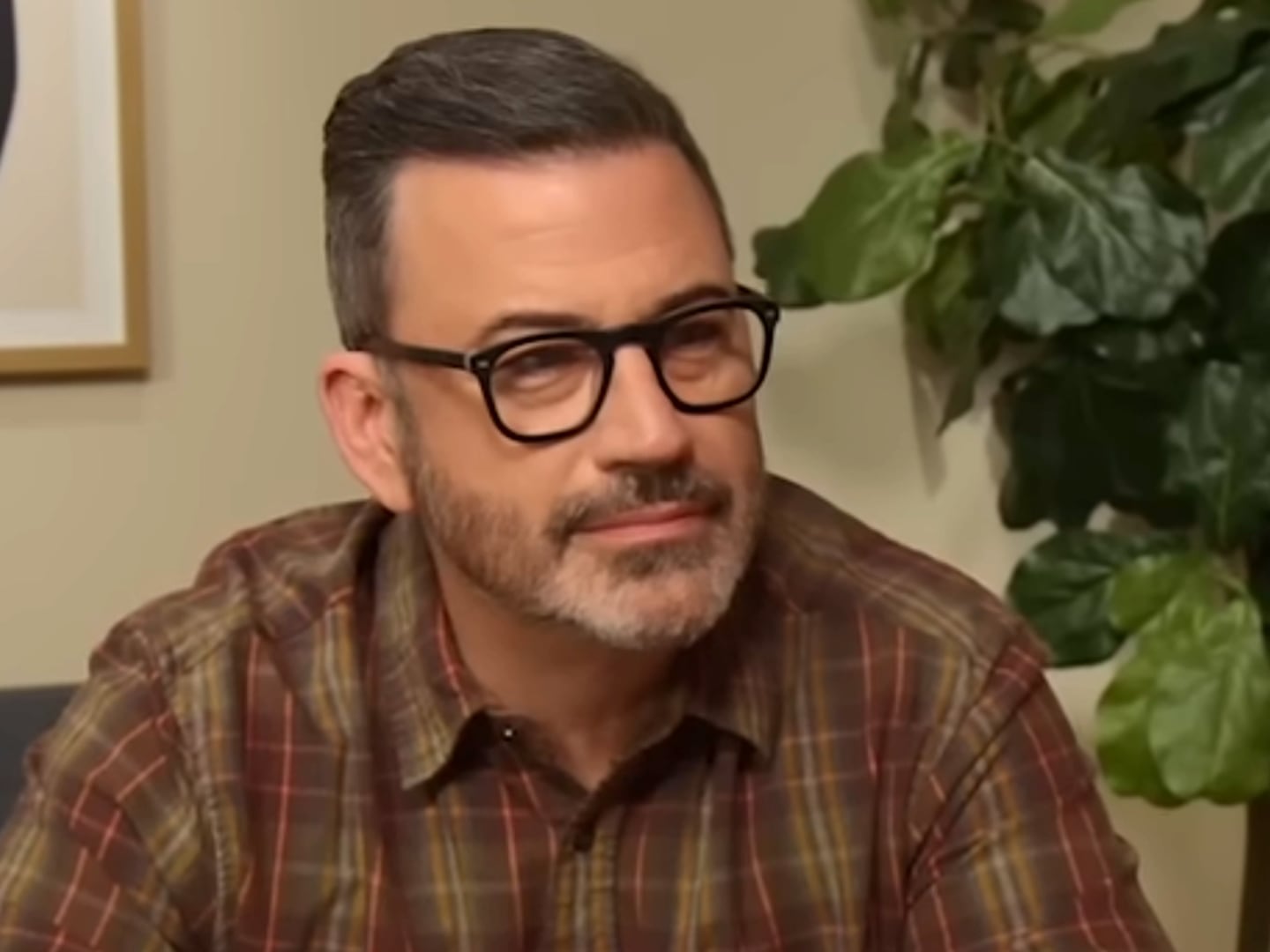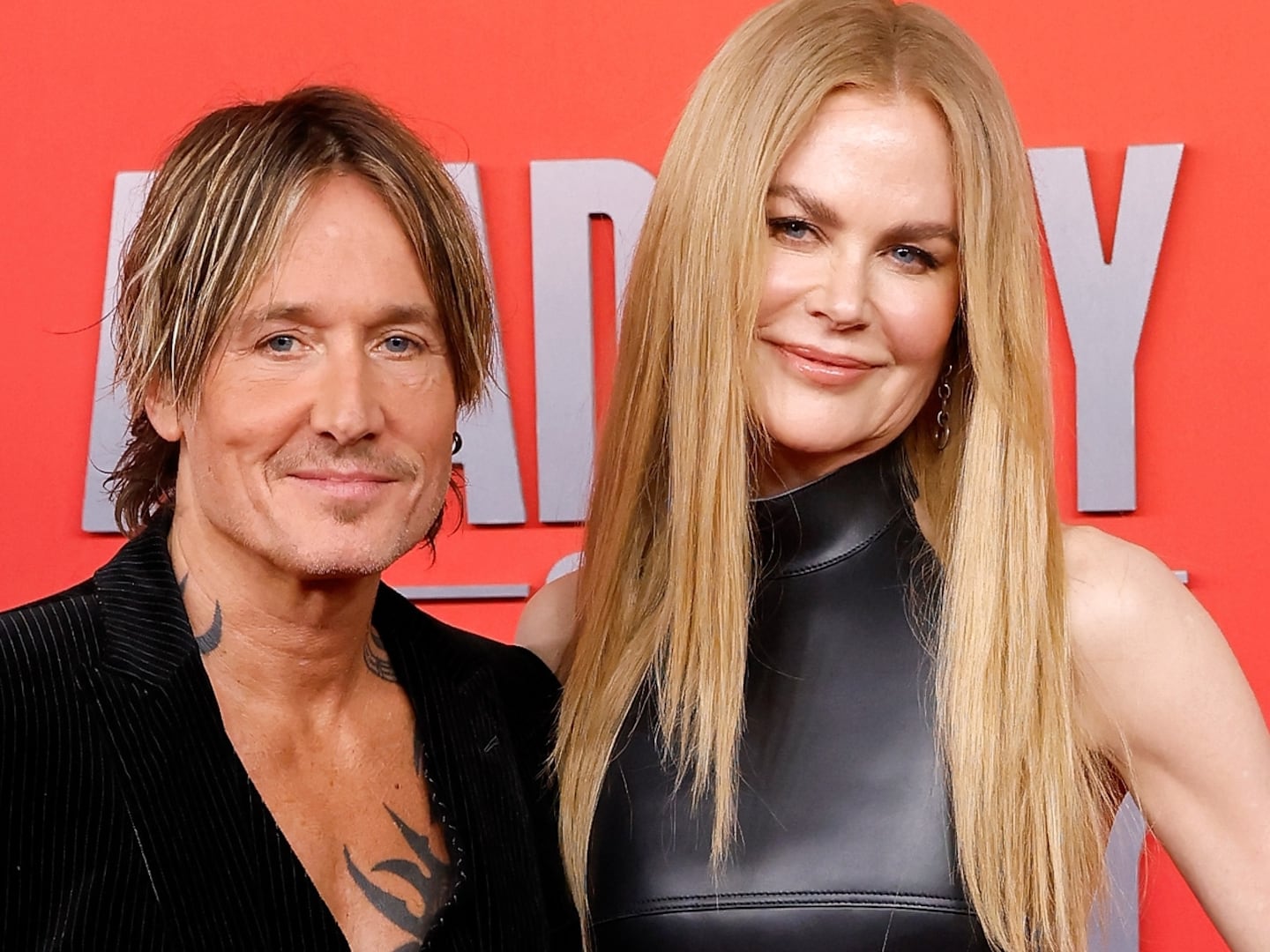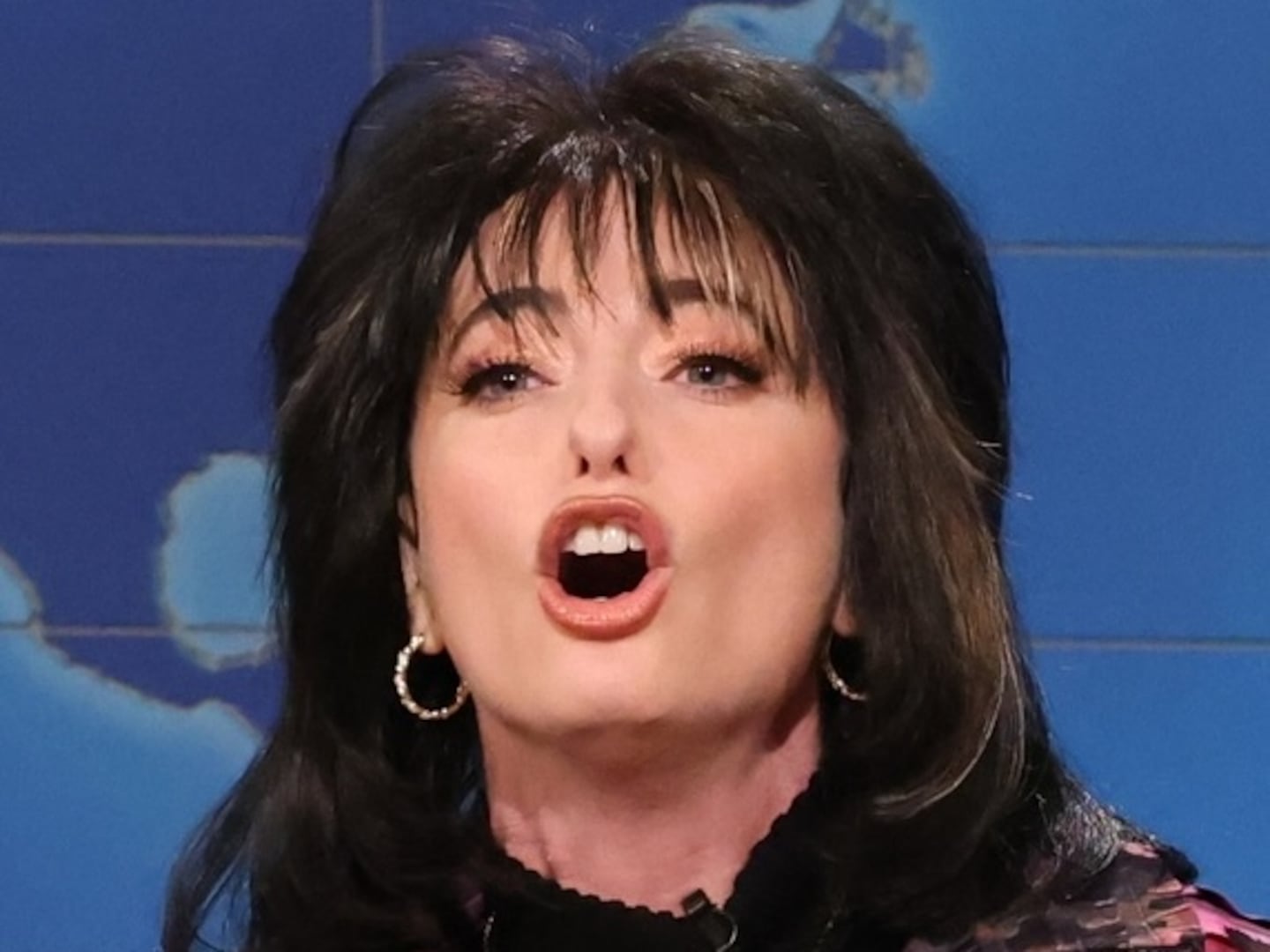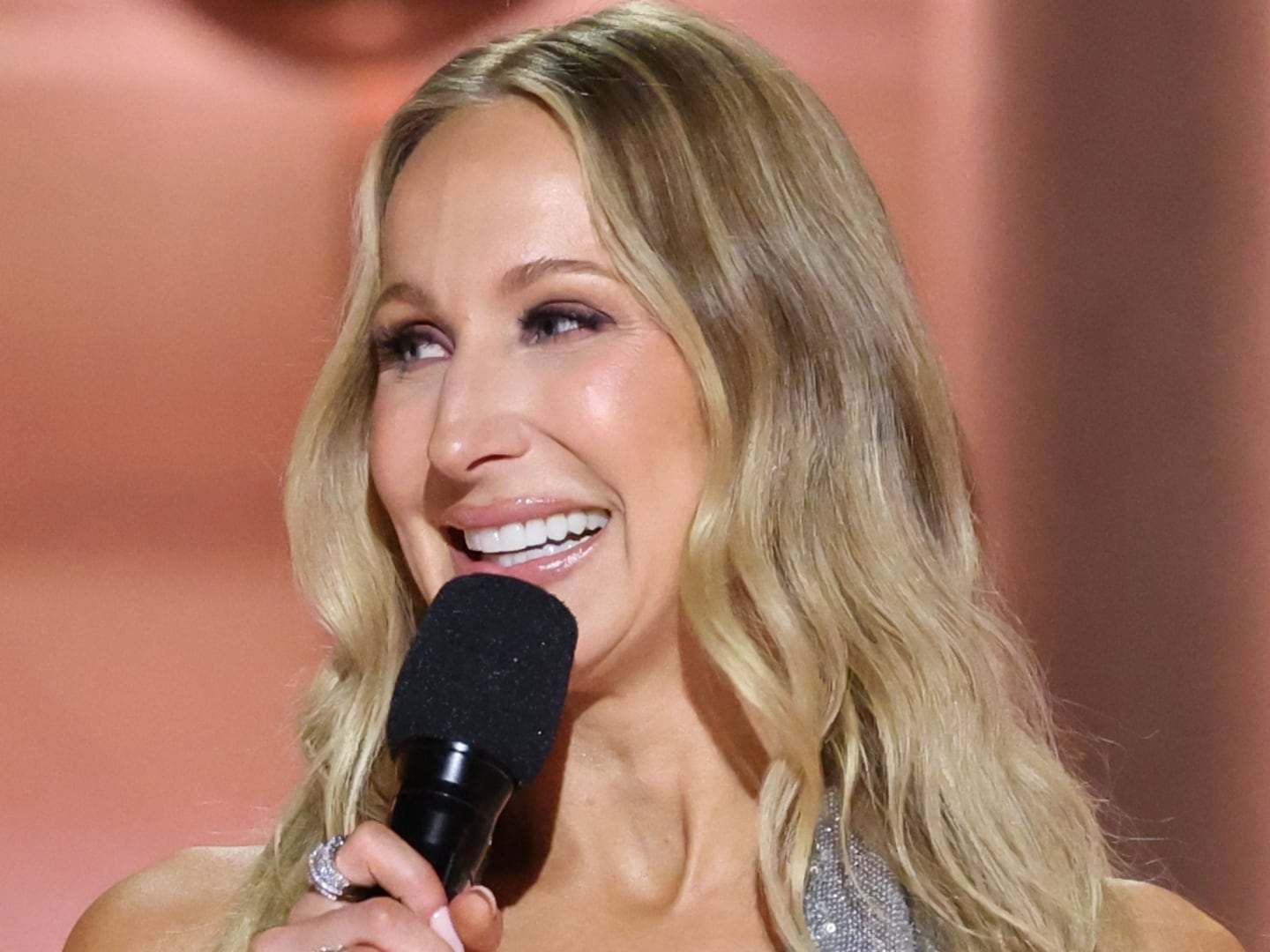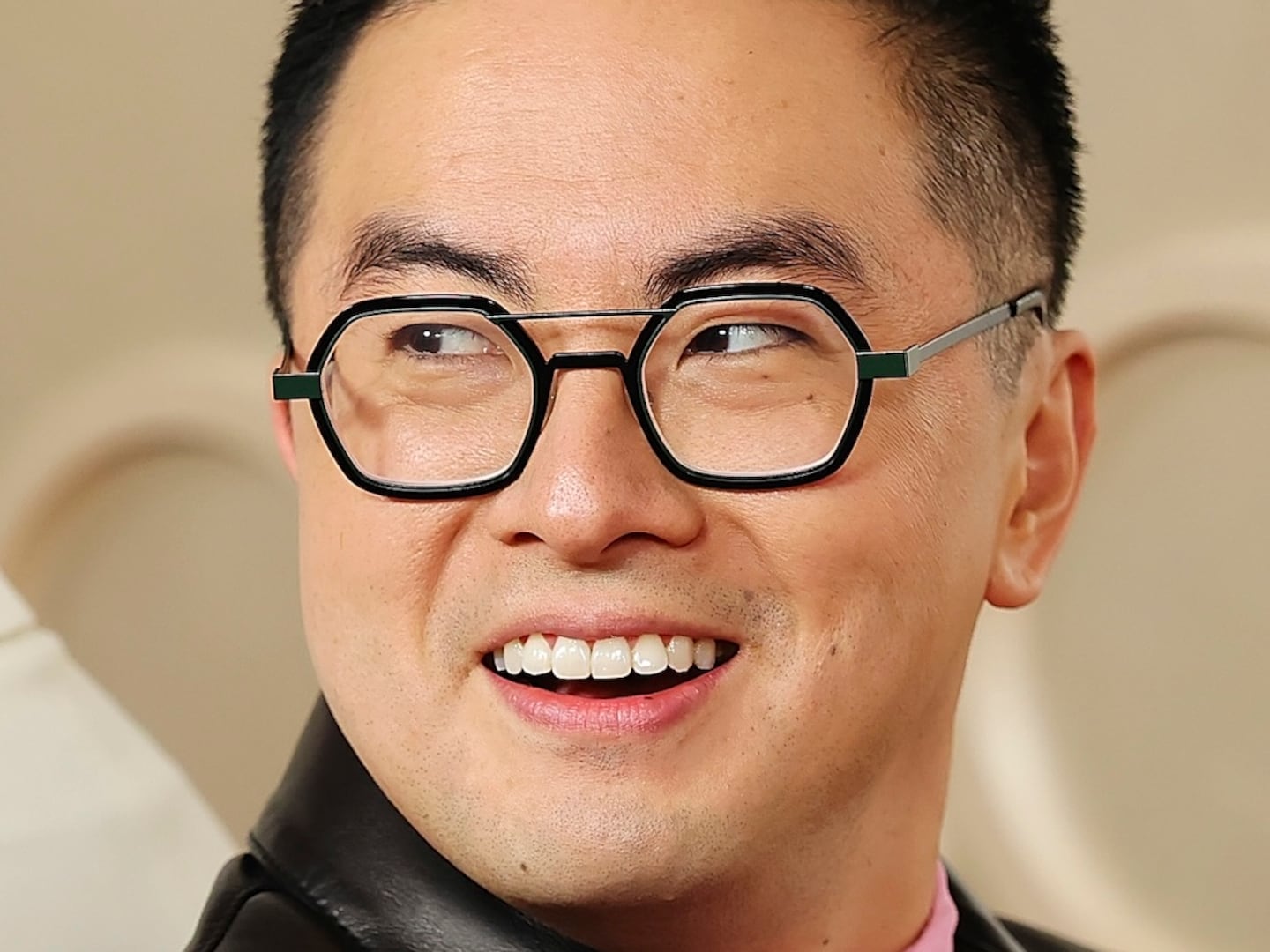Jena Malone endures some dark, disturbing, traumatizing stuff in her new movie Consecration. That’s exactly the way she likes it.
If you start scrolling now on the actress’s IMDb credits, you might reach the end of the list by tomorrow morning. Malone made her feature film debut when she was 12, quickly becoming one of Hollywood’s most in-demand—and preternaturally gifted—child actors of the ’90s, in movies like Contact, Hope, and Stepmom. Her résumé runs the gamut from critically acclaimed dramas (Life as a House, Into the Wild) to major blockbusters (Batman v Superman: Dawn of Justice, the Hunger Games franchise) to psychological thrillers (Donnie Darko, The Neon Demon).
For the first time in her nearly three decades in the industry, Malone has been saying “no.” Her son is in first grade, and her desire to be home with him has replaced the pressure to chase every project and opportunity, taking her around the world for multiple film shoots a year. “I’ve been a little bit more precious,” she tells The Daily Beast’s Obsessed about choosing her projects now. That makes her decision to star in Consecration a telling one about her taste and the kinds of offbeat projects that appeal to her.
The film, co-written and directed by Christopher Smith, is a trippy tale of death, violence, possession, and the Catholic Church. Malone plays Grace, an ophthalmologist who trusts science and is skeptical of religion. When she gets a call that her brother, a priest visiting a convent in Scotland, died in an apparent murder-suicide, she refuses to believe that he was capable of such a vicious crime. The Mother Superior at the church agrees, convinced that he was possessed by a demon at the time of the killing—and that Grace might be its new host.

Consecration.
IFC FilmsMalone is put through the wringer, as the film cuts back and forth in time and reality, with Grace unsure if the haunting, gory visions she has are actually happening. A press image from the film of Malone as Grace dressed in a nun’s white robes with blood dripping down it is a good indicator of the kind of twisted film audiences are in for.
“I think ever since Donnie Darko, my agent has sort of been like, ‘Alright, here we go. I’m gonna send you this. I have no idea what this says. Can you help me understand what the script is?’” Malone laughs.
With Consecration hitting theaters this weekend, we chatted with Malone about what it is about the combination of horror and spirituality that appeals to her, this new and freer phase of her career, and why 25 years later, people on the internet are still crying over Stepmom.
At this time in your life, why is a movie like Consecration something you wanted to be a part of?
I am sort of in a new embodiment as an actor. Because I am a parent, I've been trying a different set of intentions or manifestations. I feel like my whole career, I’ve been sort of like, “Wherever you want me to go!” And I’m in Romania, and I’m all over the place. But my son’s in first grade now. And so I’ve been a little bit more precious with filming locations. So this was in London and Scotland and I was like, God, it sounds so nice, but I don’t even want to go because I can’t—school and things. But Chris was very persistent. And so I read it and I was like, "Oh, I really like it."
What was it about the script that made you have that reaction?
I've always developed a little bit of a tongue for the type of script that kind of makes you feel like a 4-year-old in a way, where you’re just like, “What happened?!” And then you’re flipping back to page 14, then back to the scene, and then back to something else. Ever since Donnie Darko, my agent has sort of been like, “Alright, here we go. I’m gonna send you this. I have no idea what this is. Can you help me understand what the script is?” And so I liked that.
How has this new phase, this new “embodiment,” as you said, been? What has the experience being more precious and meticulous in your choices been like?
I love saying no. I didn’t love it as much before. I’m very happy in the lane that I’ve created. I don’t need to be working all the time. I don’t need to be hunting awards and hunting new things. I’ve done probably 10 projects since [my son] was born, and I did five of them last year. So I’ve been very slowly and meticulously trying to find what I want to do in this thing that I love so much. But yeah, it’s interesting. You have to close a lot of doors. But it’s that beautiful saying, as you close the doors and you empower yourself to know your needs, your wants, and your desires, all of the windows open and new things come in.

Donnie Darko.
AlamyHas this experience being more meticulous now made you recontextualize your experience in Hollywood during those years when you were relentlessly chasing and hunting things?
I think, collectively, we’re all recovering from grind culture, right? So whether it’s me as an actor or you as a journalist or someone as a dentist or a firefighter, we’re all having new questions that sort of arise every day, about our well-being, our security, our needs, our wants, and our beautiful and lovely need to rest, have downtime, and tend to ourselves. I think a lot of those things were previously ritualized and languaged. So we’re building a new language about how to be humans in this world.
It is a totally new thing.
I’m just excited that we’re all going through it together, you know what I mean? That it’s a collective shift, and it's not just like some weird actor in Hollywood. I don’t think I’m alone in it. I feel like it’s something that is being asked of us all. So in that I feel like I tend to be more in the cheerleading aspect where I’m like, “Yes, Amen honey! You said no to that! Boundary! I love that for you!” Whereas if it wasn’t a collective shift, it might feel isolating or something, or I might be insecure and question myself. But I think that we’re all on a good path. And I really am proud of us.
You’ve been in a few projects that question the church and religion. I saw you in Doubt on Broadway…
You saw that! It was a thousand years ago.
I don’t even want to say how many years. But I am curious, now that you’ve done Consecration, if your opinion on spirituality has evolved over the years from doing projects like this.
I think that I wouldn’t be a good human vessel if my opinion of spirituality or religion didn’t have a constant need for shifting, because it’s an utterly unknown thing. So as we push into it, we should be pivoting, right? It should be a constant shift. As we gather new information, we get to have new ideas. And that’s the problem with encountering such giant unknowns is that we stop gathering new information. I grew up moderately appreciative and had those ideas, and then sort of stepped away and then am back again now. As a parent, I get to pivot and shift again, in the sense of how do I leverage this for my son? I think that’s probably been the biggest thing that I've constantly shifted in, religion and spirituality.
It is interesting to think of it as a journey. Because it’s been ever-changing in my life, and I don’t know if it will stop. It’s so complicated.
Yeah, it is complicated. Thank you for reminding me of that. Sometimes I tend to push into the optimistic. It is a space of great wait, because for a lot of people what’s at the end is some of the most important things in the universe. There’s nothing light about it. These are hard conversations. They’re not easy things to question. But I think what’s so beautiful about, specifically, horror, thriller, and sci fi as subgenres of filmmaking and storytelling is that those genres are about the question. You get to use these templates to ask the unanswerable questions. “This is too hard for me to comprehend. Let me put it through this filter, so it will kind of settle my shoulders down so that I can ask those hard questions—but in a format that feels more acceptable.”
This is a hard pivot, so forgive me. I don’t know if it’s because the movie was just put on a new streaming service or if people are revisiting it because it turned 25 this year, but clips of Stepmom are all over social media lately. New viewers are posting some of the more emotional scenes and writing about how much it made them cry, while people who know the film well are commiserating and weeping all over again. What do you make of that movie’s resurgence?
This is one of the main reasons why I wanted to make films from when I was tiny. I would go to the library or go to a Blockbuster, you can’t really differentiate—I mean, I learned to discern, but when I was tiny, I couldn't differentiate between a film that had been made today, versus 40 years ago. The shelf life of a film's eternal. That's the most beautiful thing. Sometimes you reach for things that were made not for you, right? Like I was reaching for Thelma and Louise at 10 years old. That wasn't made for me. But I reached for it, and it got me somewhere.

Stepmom.
AlamyThat’s quite the movie for a 10-year-old.
Yes. But that’s why we do this. That’s why I do this. Because I think that you can make beautiful things that don’t have to resonate perfectly with society, but rather resonate imperfectly throughout time. And that is what some of my favorite things I've done are. Contact. Stepmom. Donnie Darko. Neon Demon. All of these things have resonance, whether it’s an imperfect resonance or not. I think what’s so interesting about Stepmom is that it did really well when it came out, which is not always the case. When films come out, it can sort of be like, “OK, they had their day and are now forgotten.” Stepmom talks about that sort of anti-nuclear family, and I think that’s a conversation that still needs to be had.
One thing actors get asked a lot is what they want to do next. Has this new “embodiment” in your career changed that answer for you?
I don’t know. I’ve left Hollywood many times. I’ve explored many different things. I’ve had so many lives in it. I think my ability to have had so many lives and not feel so much pressure is that I’ve never known what I wanted next. What I want is just to keep exploring. And as long as exploration is fulfilling, then I’m super game. Like, sign me up. I’m still on board. But when the exploration becomes less and less fulfilling, whether as an actor, as a parent, as a lover, or as a family member, you have to find a new approach
The exploration of acting is still exciting to me. But when it becomes less and less exciting, it’s my job to veer into other things that the exploration of can continue to fulfill me. Whether that’s writing or directing or doing reality TV or becoming a theater coach at my son’s school—wherever the avenue takes you, you have to explore it. It may not look like a next level of your career. It could look like a backslide, like a total about face. No one would support it. But you have to do that work. So I think for me, I try not to be too cautious about, “What am I going to do next?” because then it closes certain doors that I want to keep open.
Keep obsessing! Sign up for the Daily Beast’s Obsessed newsletter and follow us on Facebook, Twitter, Instagram and TikTok.


